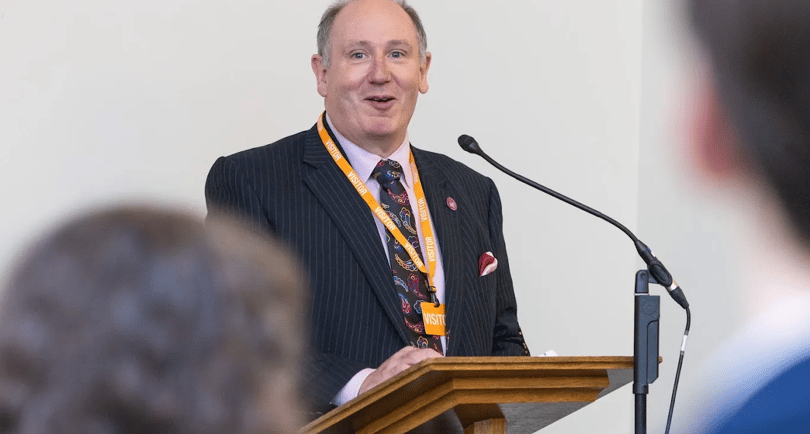Meeting the next High Sheriff
3/10/20253 min read


As John May prepares to take on the role of High Sheriff of Oxfordshire, he reflects on how a thousand-year-old office can still help address some of the most pressing challenges facing communities today.
When John May takes office as High Sheriff of Oxfordshire this spring, he will do so with a theme that feels both timely and deeply personal: Hearing the Young Unheard. It’s a commitment not only to honour the historic roots of the role but to use its modern-day potential to amplify voices that too often go ignored.
“The role of High Sheriff might seem like a curious historical footnote,” May admits with a smile. “It’s easy to assume it’s all pageantry and parchment. But at its heart, it’s about service—to the Crown, the judiciary, and to the community. And in today’s world, that service can take on real relevance and meaning.”
With a background in youth work and a long-standing career in the voluntary and civic sectors, John May brings a depth of experience to the role. He’s under no illusions about the challenges young people face in Oxfordshire and beyond: rising levels of anxiety, youth violence, isolation, economic insecurity, and a growing mistrust of public institutions.
“Young people are navigating a complicated world,” he explains. “And often, they feel powerless within it. Their voices aren’t always heard when decisions are being made that affect their lives. My theme is about giving them space to speak—and making sure that those in positions of influence take the time to listen.”
The office of High Sheriff is one of the oldest secular roles in the country, dating back over a millennium. While many of its original duties—such as tax collection and law enforcement—are now long defunct, the role still includes a commitment to support the judiciary, the police, prison and probation services, and emergency responders.
“I will absolutely uphold the formal responsibilities of the role,” says May. “But I also want to lean into the opportunity it offers to build bridges—to bring together people from different sectors, to celebrate the unsung, and to lift up the stories of those working behind the scenes to prevent harm before it happens.”
For May, prevention is key. While he recognises the vital role played by the police and courts, he is equally passionate about championing those working upstream: the teachers, youth workers, foster carers, and volunteers who support young people before problems escalate.
“I’ve already met extraordinary people in Oxfordshire—running youth clubs, mentoring care leavers, helping families in crisis,” he says. “They’re doing the work that truly changes lives. I want to use this role to give them visibility, encouragement, and connection.”
One of the unique powers of the High Sheriff, May argues, is its neutrality. As a non-political, unpaid role with no executive authority, it grants freedom—freedom to convene, to listen without agenda, and to shine a spotlight on the people and initiatives that matter.
“We live in a time when things can feel fragmented,” he reflects. “The High Sheriff can offer something rare: presence. Sometimes, just showing up and paying attention can be transformative—particularly for young people who feel overlooked.”
His planned year will include a series of listening events and visits across Oxfordshire, focused on young people whose voices are seldom heard in policy discussions—those facing exclusion from school, in the care system, at risk of exploitation, or simply isolated.
“I want the Big Conversation we’re planning to be exactly that—a conversation. Not a report. Not a token gesture. But a genuine dialogue between young people, community leaders, charities, and those in authority. Because the answers are often already there—we just need to listen.”
As he approaches his Declaration, May is quietly determined. For him, the role of High Sheriff is not about ceremony for ceremony’s sake. It’s about leveraging history in the service of today’s challenges—and tomorrow’s hopes.
“We may no longer carry swords or wear chainmail,” he says wryly, “but we can still protect. We can protect space—for stories, for honesty, for hope. And if that’s what this role enables, then I think it’s as relevant now as it’s ever been.”
The Oxfordshire Shrievalty
Championing justice and community across Oxfordshire
© 2025. All rights reserved.
